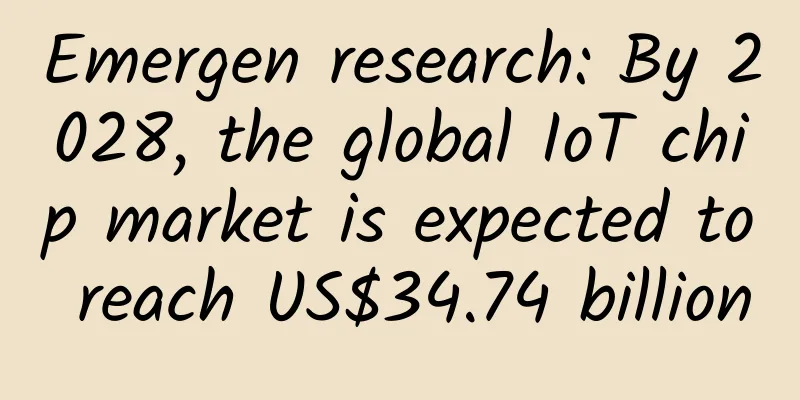Bubble or opportunity? 2016 Enterprise IT Market Innovative Technology Application Survey Report

|
The four major innovative technologies of Internet of Things, 3D printing, virtual reality and artificial intelligence are undoubtedly the hottest "hotshots" in the IT industry. Reports from many consulting firms, including PricewaterhouseCoopers, believe that they are disruptive technologies that can change the future. But after many rounds of hype, how do companies view these disruptive technologies? Which technologies do companies value most, and how do they plan their innovative technology applications? The following is a survey of 560 IT experts around the world by Spiceworks. The enterprise market prospects of the four major innovative technologies: 1. Among the four major innovative technologies, enterprise IT experts are most optimistic about the Internet of Things and artificial intelligence. 2. Although many IT experts see the potential of VR and 3D printing, they do not believe that these technologies will be widely used in the enterprise market. 3. Compared with 3D printing and virtual reality, companies are more concerned about the security/privacy issues of artificial intelligence and the Internet of Things. 90% of respondents believe that security and privacy are the issues that need to be addressed first. 4. Enterprise IT experts are looking forward to the emergence of true leading companies in the Internet of Things, artificial intelligence, virtual reality VR and 3D printing markets. Innovative technology enterprise application trends: Internet of Things is the best choice for enterprise IT managers Although IoT security incidents occur frequently, IoT technology is still the hottest innovative technology in the enterprise IT market. 20% of IT experts said that IoT technology has been deployed in their enterprises, and 41% said that they will deploy this technology in the future. 3D printing, which ranked second, has been deployed by 10% of the surveyed enterprises, and 11% plan to deploy it in the future. Virtual reality and artificial intelligence, which ranked third, have only been deployed by 7% and 3% of enterprises respectively, but as many as 23% of enterprises said that they will deploy artificial intelligence technology in the future, which is much higher than the 13% of virtual reality. (Figure above) Different industries have serious divergence in their demands for innovative technologies The 3D printing deployment rate (45%) and VR deployment rate (13%) in the education industry are significantly higher than those in other industries. The healthcare industry has the highest IoT deployment rate (28%), surpassing all other industries. The demand for AI in IT-related industries such as IT services, software, and telecommunications is ***. Industries such as manufacturing, architecture and engineering have seen high deployment of 3D printing, while the use of VR is expected to soar as demand for new projects increases. |
<<: New challenges for the telecommunications industry in 2017: Progress in 5G and fiber deployment
Recommend
Ma Xiaofang from Xunlei: I yearn for a manager who is like a "stabilizing force"
[51CTO.com original article] In order to pay trib...
HostKvm newly launched China Unicom CUVIP line VPS, 1G memory package starts at $5.2/month after 20% discount
Recently, more and more merchants have connected ...
The soul-searching questions of TCP protocol: strengthening your network foundation
First show the mind map of this article: TCP, as ...
NTT and Cisco Collaborate to Implement Software-Defined WAN Solutions for Customers
[[419187]] As Cisco's global strategic partne...
Report: By 2025, 5G mobile phones will account for more than 50% of smartphone sales revenue
[[417906]] A new study by Juniper Research found ...
TCP waves four times: Why four times? The principle is revealed!
introduction Hello, everyone. I am your technical...
One router makes all the appliances in the house smart. Huawei's ecosystem is taking over Xiaomi
At present, among China's smart home brands, ...
Ruijie Networks releases simplified Ethernet all-optical 3.X solution, Ethernet color optical leads the innovation of campus all-optical network
On the afternoon of April 25, Ruijie Networks hel...
BudgetVM high-defense dedicated server 50% off for the first month, 1Gbps unlimited traffic, 5 computer rooms starting from $41.94
BudgetVM is still offering a 50% discount on the ...
Actual combat case: Explosion! Accessing a certain IP in the intranet caused the entire network loop to crash. The root cause was this lazy configuration...
Background The client company is a retail company...
F5 Launches Industry’s First Integrated Application Delivery and Security Platform to Enable Hybrid Multi-Cloud Infrastructure in the AI Era
F5 recently announced the launch of the F5 Applic...
CrownCloud: Los Angeles AMD Ryzen KVM special price starts at $30 per year
In April this year, CrownCloud launched the AMD R...
2017 Prediction: Will Networking and Security Finally Merge?
[51CTO.com Quick Translation] It’s a new year aga...
How to resolve the conflict between 5G intermediate frequency and satellite C band?
At present, various regions continue to accelerat...
HostYun: AMD5950X+M.2 SSD products are launched in Osaka, Japan, with monthly payment starting from 18 yuan
HostYun recently launched the AMD5950X+M.2 SSD pr...









